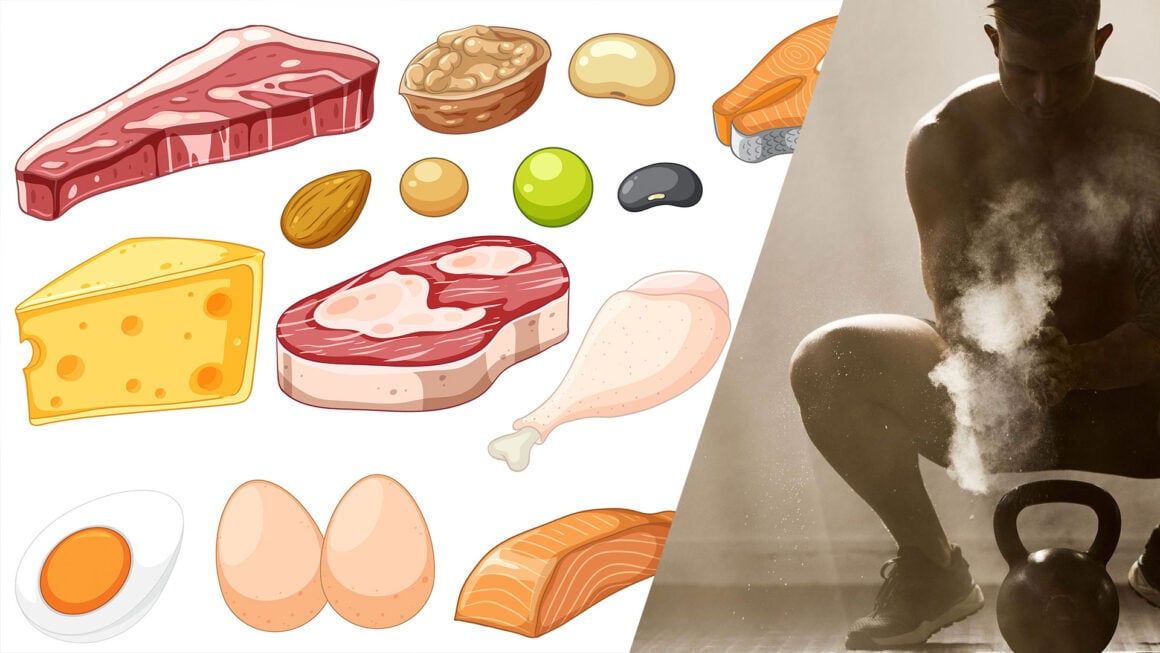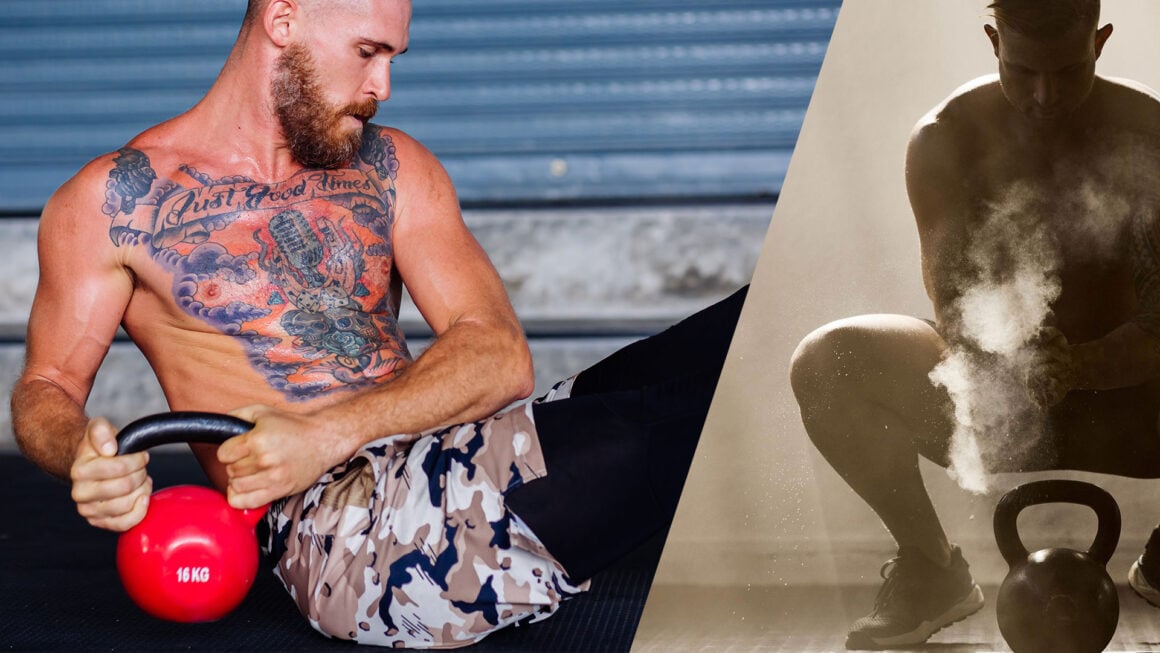Getting stronger with kettlebells starts with what you eat. Your muscles work hard during every swing, squat, and press. They need the right fuel to recover and grow stronger. Protein provides the building blocks your body uses to repair muscle tissue after intense kettlebell sessions. Research shows that people who exercise regularly need more protein than those who don’t work out. Strategic protein intake can dramatically improve your kettlebell training results and help you build lean muscle faster.
Protein Requirements for Kettlebell Athletes
Active kettlebell users need more protein than sedentary individuals to support muscle recovery and growth. The standard recommendation for inactive adults is just 0.75 grams per kilogram of body weight. This barely covers basic needs. Kettlebell training breaks down muscle fibers during every workout. Your body rebuilds these fibers stronger than before.
Research from sports medicine organizations shows that people who exercise regularly need 1.2 to 1.7 grams of protein per kilogram of body weight daily. Elite athletes often consume around 2 grams per kilogram. Kettlebell workouts are intense and work multiple muscle groups at once. They create more muscle damage than gentler forms of exercise.
Your protein needs increase with workout intensity and frequency. Someone doing light kettlebell sessions twice weekly needs less protein than someone training hard five days per week. Age also matters. People over 40 lose muscle mass faster and may need higher protein intake to maintain strength gains from kettlebell training.
Calculating Your Personal Protein Needs
Three proven methods help determine your optimal daily protein intake for kettlebell workouts. The most accurate approach considers your specific body weight and training intensity.
The body weight method is most common among athletes:
- Moderate kettlebell training: 1.2-1.4 grams per kilogram
- Intense kettlebell programs: 1.5-1.7 grams per kilogram
- Elite or competitive training: Up to 2.0 grams per kilogram
To convert pounds to kilograms, divide your weight by 2.2. A 150-pound person weighs 68 kilograms and needs 82-116 grams of protein daily for kettlebell training.
The percentage method calculates protein as 30% of total daily calories. If you eat 2000 calories daily, aim for 600 protein calories. Since protein contains 4 calories per gram, this equals 150 grams of protein.
The height-based formula starts with 50 grams for a 5-foot person, then adds 7 grams per inch. A 5’10” person would need approximately 120 grams daily. This method works well for people unsure about their body fat percentage.
Timing Your Protein for Maximum Results
When you consume protein matters as much as how much you eat for kettlebell performance. Your body builds muscle proteins continuously, but at certain times creates better opportunities for growth and recovery.
Start each day with at least 30 grams of protein at breakfast. This kickstarts muscle protein synthesis after overnight fasting. Your body has been breaking down muscle proteins while you sleep. Morning protein helps reverse this process and sets you up for better training later.
Consume 15-25 grams of protein within two hours after kettlebell workouts. This post-exercise window helps your body repair damaged muscle fibers and build new ones. You don’t need to rush to drink a protein shake immediately after training. Research shows the window stays open for several hours.
Spread protein evenly throughout the day in 15-30 gram portions. Your body can only use about 30 grams of protein at once for muscle building. Eating 150 grams in one massive meal wastes most of it. Instead, include protein-rich foods in every meal and snack. This steady supply keeps muscle protein synthesis elevated all day.

Best Protein Sources for Kettlebell Athletes
Whole food proteins outperform supplements for supporting intensive kettlebell training. Natural protein sources provide additional nutrients that help your body recover from hard workouts.
Complete proteins contain all nine essential amino acids that your body cannot make:
- Chicken breast: 33 grams per 100 grams
- Fish and seafood: 18-24 grams per 100 grams
- Eggs: 13 grams per 100 grams
- Greek yogurt: 10 grams per 100 grams
- Lean beef: 36 grams per 100 grams
Plant-based options work well when combined properly. Incomplete proteins lack some essential amino acids but provide other benefits. Rice and beans together create a complete protein. Hummus with whole grain pita does the same. Soy products like tofu contain all essential amino acids naturally.
Protein supplements can help when whole foods aren’t practical. Choose products with minimal ingredients and no added sugars. Plant-based powders work well for vegetarians and vegans. However, prioritize whole foods whenever possible. They provide vitamins, minerals, and other compounds that support recovery better than isolated protein powders.
Common Protein Mistakes in Kettlebell Training
Avoiding these protein pitfalls helps maximize your kettlebell workout results. Many people sabotage their progress with poor protein habits.
Major mistakes include:
- Skipping breakfast protein and missing the morning muscle-building window
- Eating inconsistent amounts daily instead of maintaining a steady intake
- Relying too heavily on protein powders instead of whole foods
- Ignoring post-workout nutrition and missing recovery opportunities
- Calculating protein needs based on total body weight instead of lean mass
Many people front-load protein at dinner while eating very little at breakfast and lunch. This pattern wastes protein and limits muscle growth. Your body builds muscle throughout the day, not just after evening meals.
Another common error is thinking that more protein always equals better results. Research shows benefits plateau around 2.2 grams per kilogram of lean body mass. Eating excessive protein won’t speed up muscle growth and may cause digestive issues.
Some people obsess over post-workout protein timing while ignoring total daily intake. Getting enough protein throughout the day matters more than perfect timing. Focus on consistency before worrying about small optimizations.
Protein: Your Kettlebell Training Foundation
Proper protein intake forms the foundation of successful kettlebell training programs. Your muscles need adequate amino acids to recover from intense workouts and grow stronger over time. The research clearly shows that active individuals require significantly more protein than sedentary people. Aim for 1.2-1.7 grams per kilogram of body weight daily, spread evenly throughout your meals, with special attention to breakfast and post-workout nutrition. Prioritize whole food sources over supplements whenever possible, and maintain consistent intake to maximize your kettlebell training results and build the lean, strong physique you’re working toward.


